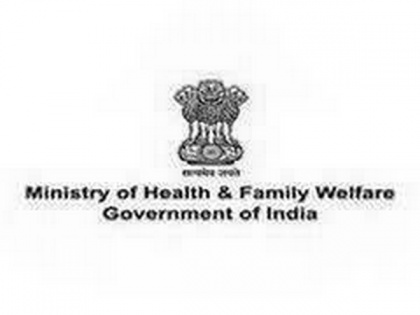14 States report reduction in worm prevalence infection in children: Health Ministry
By ANI | Published: October 20, 2020 03:02 PM2020-10-20T15:02:14+5:302020-10-20T15:20:08+5:30
At least 14 States have reported a reduction in parasitic intestinal worm infection prevalence in children, revealed the latest report on the National Deworming Day (NDD), the Union Health Ministry said on Tuesday.

14 States report reduction in worm prevalence infection in children: Health Ministry
At least 14 States have reported a reduction in parasitic intestinal worm infection prevalence in children, revealed the latest report on the National Deworming Day (NDD), the Union Health Ministry said on Tuesday.
Worm prevalence is seen in children, which affects a child's physical growth, causes anemia and undergrowth to them.
In the last round of deworming in the country earlier this year (which was halted due to the COVID pandemic), 11 crore children and adolescents were administered Albendazole tablet across 25 States and UTs.
To assess the exact burden of Soil-Transmitted Helminthiases (STH), the health ministry appointed the National Centre for Disease Control (NCDC) as the nodal agency to coordinate and conduct nationwide baseline STH mapping.
NCDC completed the baseline STH mapping across the country by the end of 2016. The data showed varied prevalence ranging from 12.5 per cent in Madhya Pradesh to 85 per cent in Tamil Nadu.
"All 14 States have shown reduction in the follow up survey compared to the baseline prevalence survey and the State of Chhattisgarh, Himachal Pradesh, Meghalaya, Sikkim, Telangana, Tripura, Rajasthan, Madhya Pradesh and Bihar have shown substantial reduction in worm prevalence in the STH follow up prevalence survey," it said.
"For example, Chhattisgarh has successfully conducted 10 rounds of NDD till date, and the drop in prevalence has been significant from 74.6 in 2016 to 13.9 in 2018. Similarly, Sikkim, with 9 rounds, has seen reduction from 80.4 in 2015 to 50.9 in 2019; Andhra Pradesh has, however, seen limited reduction from 36 in 2016 to 34.3 in 2019 with a total of 9 rounds. Rajasthan, the State that implemented an annual round only due to low baseline of 21.1 in 2013 has seen significant reduction to the level of less than 1 per cent in 2019 as per the survey," noted the health ministry.
The National Deworming Day (NDD), a flagship program of the health ministry, was launched in 2015. It is being implemented as a biannual single day programme through schools and anganwadis.
Albendazole tablet, approved by World Health Orgzation (WHO), is used for treatment of intestinal worms in children and adolescents as part of Mass Drug Administration (MDA) programmes globally. As per WHO Report on STH published in 2012, in India, there were an estimated 64 per cent children in the age group (1-14 years) at risk of STH.
The Centre also informed that in the view of COVID-19 pandemic, as schools and Anganwadis remain closed, frontline health workers are trained to follow COVID-19 safety guidelines while administering Albendazole tablets to children and adolescents (1-19 years) during home visits or through staggered Village Health Station and Nutrition Day (VHSND) based model between August and October 2020.
( With inputs from ANI )
Disclaimer: This post has been auto-published from an agency feed without any modifications to the text and has not been reviewed by an editor
Open in app